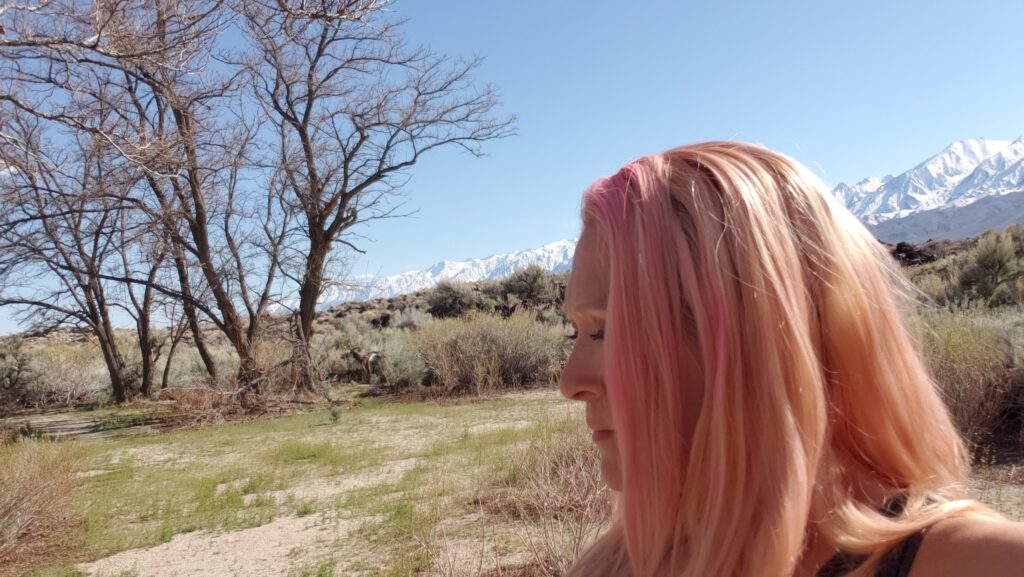
About three years ago, I was in the middle of an unrelenting 6-month-long treatment for Lyme disease that I feared may kill me. Actually, I wished it would kill me and put me out of my misery, but I knew I’d never be that lucky. I was so fatigued I could barely walk and two weeks later I was in a wheelchair. I (felt like I) was failing as a mother, wife, friend and any other role I’d been assigned on this planet because (I felt like) my body was failing me.
I was crying in the church bathroom after a meeting when a woman I knew for decades, a successful actress and a Grand Poobah of sorts in my 12-step program, walked into the bathroom. Her face said safety, warmth and someone who will understand. After all, she was on the other side of a long battle with breast cancer. Maybe she could give me some strength and hope. I told her about Lyme, the depression and that I was as fatigued as I was when I had postpartum depression and that’s when she stopped me with anger in her eyes.
“You don’t know fatigue until you’ve had cancer. Don’t even talk to me about fatigue.”
That oh-so-familiar warm wash of shame engulfed me and I had to get out fast. I threw on enough armor to get out of the conversation politely. I didn’t speak my truth. I didn’t let her know how hurtful her words were to me. Instead, I kicked her off any pedestal I ever allowed her the grace to stand on and I started scripting my defense.
My ego stood on end.
I’m sorry, are you – a childless woman – telling me your cancer fatigue was worse than my postpartum? Try having that fatigue and having to care for a crying, hungry baby on top of it and then you tell me about fatigue. And how about the fatigue of Lyme disease that’s been compared to that of congestive heart failure? And when I say Lyme, I’m leaving out the five other viral infections my compromised immune system has reactivated and Hashimoto’s thyroiditis. And my brain went on and on and on…
The words I wanted to say ate me alive. They made me angrier and angrier. I decided never to emotionally expose myself to anyone ever again. I get a little black-and-white when my shame is triggered, can you tell?
Several days and pages of writing later, I got clear. I could see the real problem. The problem was not that my friend is an evil witch and the problem was not that I didn’t say or not say what I wish I had said – the problem was that we were engaged in a battle of comparative suffering.
Brené Brown puts it so much better than I can: “…fear and scarcity immediately trigger comparison, and even pain and hurt are not immune to being assessed and ranked. My husband died and that grief is worse than your grief over an empty nest. I’m not allowed to feel disappointed about being passed over for promotion when my friend just found out that his wife has cancer…”
So the problem, my friends, is in the comparing. There’s an old phrase I love – compare… and despair – because once we start comparing and one-upping or negating our own pain, we all lose. It’s not about the perceived weight or size of the tragedy, it’s the response the individual going through it experiences. Pain is the only appropriate measuring stick, not the cause of the pain. No matter the loss, it’s the pain we carry that matters and the love that we can give each other that heals.
My friend could’ve been having a horrible day. Or not. But I choose to believe that she was doing her best in that moment. I also learned that she’s not a person to trust when I’m that raw. I have a few trusted friends I can go to when I feel so vulnerable, so shattered – like a bird with broken wings – and she is not on that list. I honor myself enough to trust people who have earned my trust.
The learning in this was great. And horribly painful. I entered the conversation already bloodied and left much worse for the wear. And I have to believe that I, too, was doing my best that day.
About a month after the great tragedy-off, I was feeling so good I went to lunch with my husband and son and I heard a familiar voice.
“Is that Court?”
And there was my friend, smiling right from her heart. She has one of the best smiles in LA. She hadn’t seen my son since he was a baby. I introduced her to my husband. I stood up and gave her a huge hug and then she planted a huge kiss on my mouth. (This was right before the pandemic so it wasn’t an act of aggression.)
“Your family is beautiful. I’m so happy you’re feeling better. I love you.”
And with that we said goodbye. I never had to battle with her about whose battle was greater. About whose pain was deeper. About who was more fatigued. The fact is we are two women who’ve been through some shit and were doing our best on any given day.
And I still consider her a friend.
